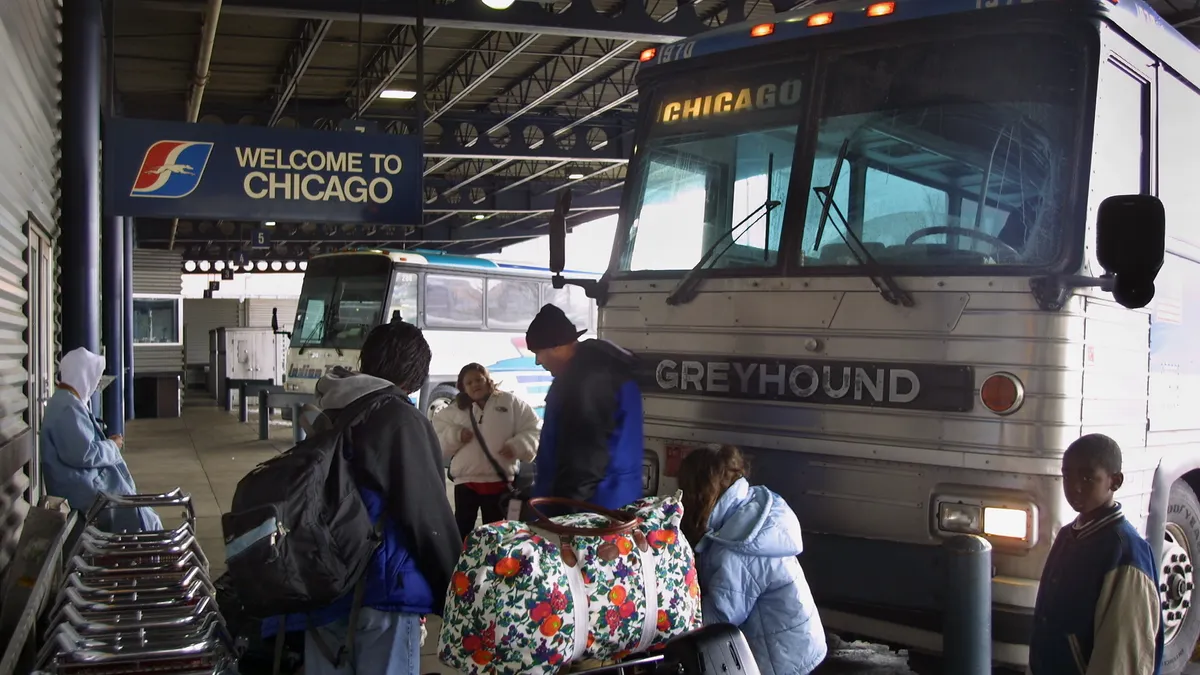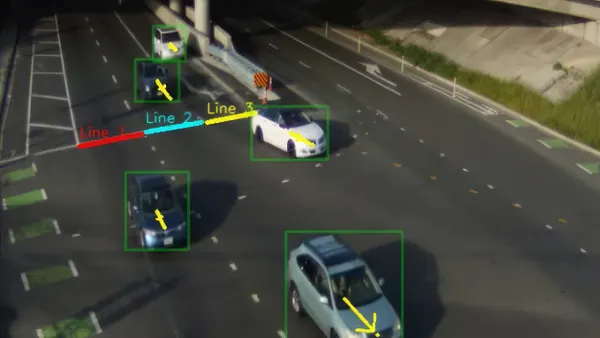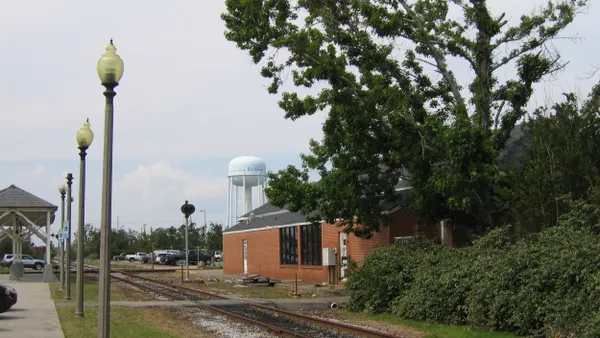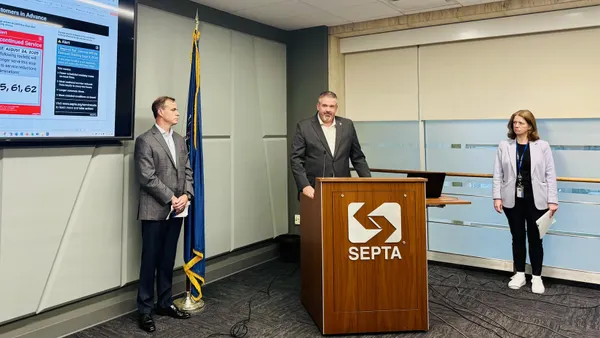UPDATE: Oct. 18, 2024: Some intercity bus riders will be able to continue using Chicago’s main bus terminal for the time being. A Flix North America spokesperson told Smart Cities Dive in an email statement that the company is in the process of finalizing a month-to-month lease extension on use of the site. “Our operations will continue without disruption,” the spokesperson said. It’s unclear if bus operators other than FlixBus and Greyhound, which Flix owns, will be included in the arrangement.
Joseph Schwieterman, director of the Chaddick Institute for Metropolitan Development at DePaul University, said that it is important to “find a place for Greyhound, Flix and their partners that they can live with in the short run.” He added that the city of Chicago will need to be involved in finding a more permanent location for an intercity bus terminal.
“This is a temporary solution, and we remain actively engaged with the city and other stakeholders to secure a long-term home for intercity bus service in Chicago,” the Flix spokesperson said.
Joseph Schweiterman, director of the Chaddick Institute for Metropolitan Development at DePaul University, said that after this story published on Aug. 28, Chicago government officials began working closely with the bus lines on possible solutions.
Dive Brief:
- Intercity bus operators could be forced out of Chicago’s bus terminal in September when Greyhound’s lease expires, said Gilda Brewton, head of public affairs for FlixBus, speaking on a Tuesday webinar. Greyhound and FlixBus are both Flix brands. The bus station’s property owner, Twenty Lake Holdings, aims to sell the site.
- The bus station handles more than half a million riders annually and serves four bus lines: Greyhound, FlixBus, Barons Bus Lines and Burlington Trailways.
- Chicago is in talks with Amtrak to allow curbside bus operations along Jackson Boulevard at the railroad’s Union Station as a temporary measure, but Amtrak said in an Aug. 13 letter to Chicago Mayor Brandon Johnson and Transportation Commissioner Thomas Carney that it had concerns about overcrowding at the station, which could create dangerous conditions outside for pedestrians and other issues.
Dive Insight:
When Flix acquired Greyhound in 2021, the iconic bus line’s real estate holdings, including some bus stations, were not part of the deal. In some cities, like Los Angeles, the bus operator relocated to a major transit hub. But in Chicago, “There hasn't been any sort of scenario analysis done by City Hall, bringing the stakeholders together, and that's why we're in this crisis today,” said Joseph Schwieterman, director of the Chaddick Institute for Metropolitan Development at DePaul University on a Tuesday webinar.
The Chaddick Institute released a brief Tuesday noting that the closure of the bus terminal would make Chicago the largest city in the Northern Hemisphere without an intercity bus terminal.
“Time is running out. We are in a dire situation,” said Brewton on the webinar. Even if the Union Station site or another curbside location is found, FlixBus and Greyhound can’t operate the same level of service as they are currently providing at the bus terminal, she explained.
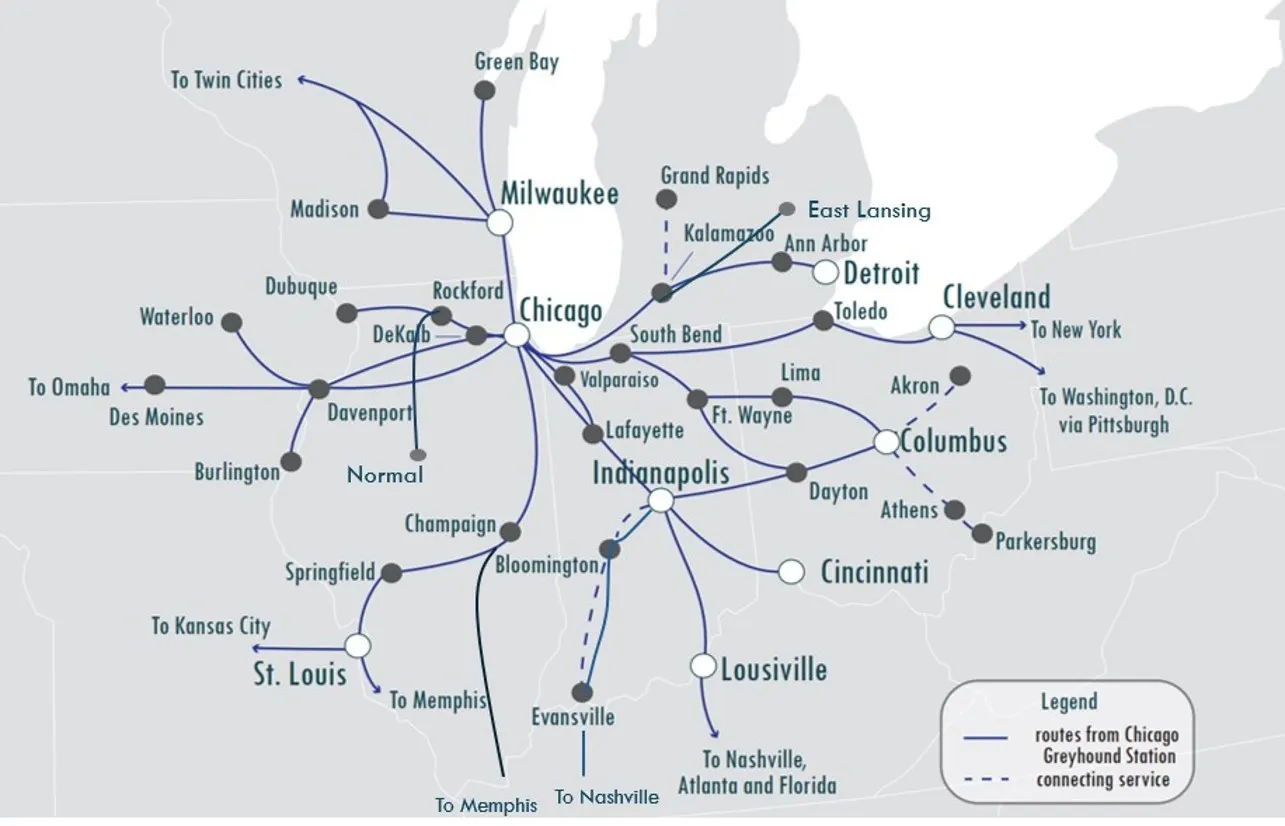
Chicago is a major connection point for routes to and from cities like Cleveland, Detroit and St. Louis, as well as smaller towns such as Champaign, Illinois, Green Bay, Wisconsin and Des Moines, Iowa. With limited bus parking, fewer buses could be accommodated and connections would become more difficult. “You simply can't drop somebody off in the street in January and say wait here three hours in the snow [for the next bus],” Schwieterman said.
The impact of reduced intercity bus service would hit hardest low-income riders, students, older adults and others who can’t afford or don’t want to fly, Brewton said: “71% of our ridership in Chicago make less than $35,000 a year.”
Chicago Alderman Carlos Ramirez-Rosa said on the webinar that the city had looked at acquiring the bus terminal but does not have the necessary funds. However, he said, “the city also needs to think creatively about the regulatory power that it has.” For example, he said that any current or future owner of the property may need to ask the city for zoning relief, which he said may be “well received by the city if they extend that lease in the short term.”
Brewton said, “We're open to ideas and anything that may help us be able to continue the service that we have.”
Amtrak met with Chicago city leaders yesterday afternoon. Amtrak did not respond to a request for information about that meeting.
Editor's note: We have updated this story to add additional comment from Schweiterman.



